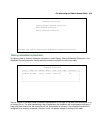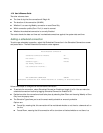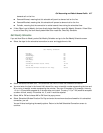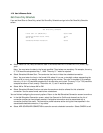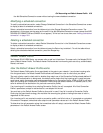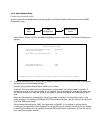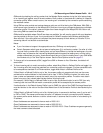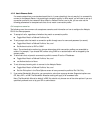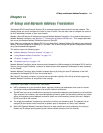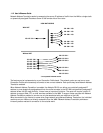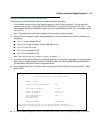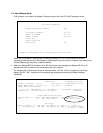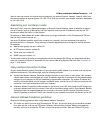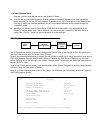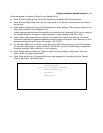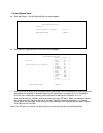
IP Setup and Network Address Translation 11-1
CC
CC
hh
hh
aa
aa
pp
pp
tt
tt
ee
ee
rr
rr
11
11
11
11
II
II
PP
PP
SS
SS
ee
ee
tt
tt
uu
uu
pp
pp
aa
aa
nn
nn
dd
dd
NN
NN
ee
ee
tt
tt
ww
ww
oo
oo
rr
rr
kk
kk
AA
AA
dd
dd
dd
dd
rr
rr
ee
ee
ss
ss
ss
ss
TT
TT
rr
rr
aa
aa
nn
nn
ss
ss
ll
ll
aa
aa
tt
tt
ii
ii
oo
oo
nn
nn
The Netopia R3100 uses Internet Protocol (IP) to communicate both locally and with remote networks. This
chapter shows you how to configure the router to route IP traffic. You also learn how to configure the router to
serve IP addresses to hosts on your local network.
Netopia’s SmartIP features IP address serving and Network Address Translation. For a detailed discussion of
Network Address Translation, see Appendix F, “Understanding Netopia NAT Behavior.” This chapter describes
how to use the Network Address Translation feature of SmartIP.
Note: When you configured your Netopia R3100 using SmartStart, Network Address Translation was enabled by
default. You have the option of disabling it, if you wish. This is done through the System Configuration screens
using Console-based Management.
This section covers the following topics:
■ “Network Address Translation features” on page 11-1
■ “Using Network Address Translation” on page 11-3
■ “IP setup” on page 11-6
■ “IP address serving” on page 11-16
Network Address Translation allows communication between the LAN connected to the Netopia R3100 and the
Internet using a single IP address, instead of a routed account with separate IP addresses for each computer
on the network.
Network Address Translation also provides increased security by hiding the local IP addresses of the LAN
connected to the Netopia R3100 from the outside world.
With SmartIP, the setup is simpler, so Internet service providers typically offer dial-up accounts supporting
Network Address Translation at a significant cost savings.
Network Address Translation features
■ NAT is selectable on a per connection basis, optionally allowing real addresses to be used for intranet
connections and proxied addresses to be used for Internet connections.
■ The NAT user can use any combination of proxied and unproxied addresses simultaneously on the available
Telco channels. For instance, one unproxied address connection profile can be used to connect to a central
office, while another proxied address connection profile can simultaneously connect the user’s Netopia
R3100 and LAN to the Internet.
■ The single proxy address is acquired at connection time from the answering side. The address can be
assigned by the remote router from either a dynamic pool of addresses or a fixed, static address.
■ Static NAT (Network Address Translation) Security is made simpler and more reliable by only having to
firewall one IP address and by obscuring the internal network structure from the Internet.



